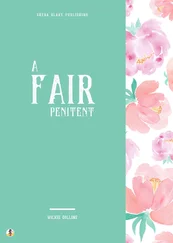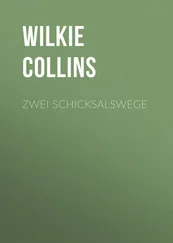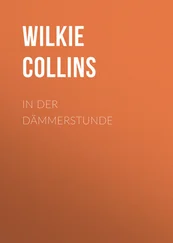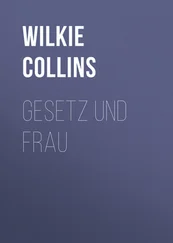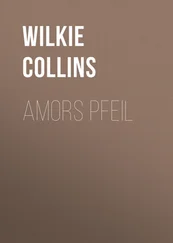Wilkie Collins - Little Novels
Здесь есть возможность читать онлайн «Wilkie Collins - Little Novels» весь текст электронной книги совершенно бесплатно (целиком полную версию без сокращений). В некоторых случаях можно слушать аудио, скачать через торрент в формате fb2 и присутствует краткое содержание. Год выпуска: 1999, Жанр: Классическая проза, на английском языке. Описание произведения, (предисловие) а так же отзывы посетителей доступны на портале библиотеки ЛибКат.
- Название:Little Novels
- Автор:
- Жанр:
- Год:1999
- ISBN:нет данных
- Рейтинг книги:5 / 5. Голосов: 1
-
Избранное:Добавить в избранное
- Отзывы:
-
Ваша оценка:
- 100
- 1
- 2
- 3
- 4
- 5
Little Novels: краткое содержание, описание и аннотация
Предлагаем к чтению аннотацию, описание, краткое содержание или предисловие (зависит от того, что написал сам автор книги «Little Novels»). Если вы не нашли необходимую информацию о книге — напишите в комментариях, мы постараемся отыскать её.
Little Novels — читать онлайн бесплатно полную книгу (весь текст) целиком
Ниже представлен текст книги, разбитый по страницам. Система сохранения места последней прочитанной страницы, позволяет с удобством читать онлайн бесплатно книгу «Little Novels», без необходимости каждый раз заново искать на чём Вы остановились. Поставьте закладку, и сможете в любой момент перейти на страницу, на которой закончили чтение.
Интервал:
Закладка:
“What wages do you get?” was the first question that astonished her.
“Three pounds a year, sir,” the unfortunate creature replied.
“All paid?”
“Only one pound paid—and I say it’s a crying shame.”
“Say what you like, my dear, so long as you listen to me. I want to know everything that your mistress says and does—first when she’s drunk, and then when she’s sober. Wait a bit; I haven’t done yet. If you tell me everything you can remember—mind everything —I’ll pay the rest of your wages.”
Madly excited by this golden prospect, the victim of domestic service answered inarticulately with a scream. Jackling’s right hand and left hand entered his pockets, and appeared again holding two sovereigns separately between two fingers and thumbs. From that moment, he was at liberty to empty the maid-of-all-work’s memory of every saying and doing that it contained.
The sober moments of the mistress yielded little or nothing to investigation. The report of her drunken moments produced something worth hearing. There were two men whom it was her habit to revile bitterly in her cups. One of them was Mr. Evelin, whom she abused—sometimes for the small allowance that he made to her; sometimes for dying before she could prosecute him for bigamy. Her drunken remembrances of the other man were associated with two names. She called him “Septimus”; she called him “Darts”; and she despised him occasionally for being a “common sailor.” It was clearly demonstrated that he was one man, and not two. Whether he was “Septimus,” or whether he was “Darts,” he had always committed the same atrocities. He had taken her money away from her; he had called her by an atrocious name; and he had knocked her down on more than one occasion. Provided with this information, Jackling rewarded the girl, and paid a visit to her mistress the next day.
The miserable woman was exactly in the state of nervous prostration (after the excess of the previous evening) which offered to the clerk his best chance of gaining his end. He presented himself as the representative of friends, bent on helping her, whose modest benevolence had positively forbidden him to mention their names.
“What sum of money must you pay,” he asked, “to get rid of the man in possession?”
Too completely bewildered to speak, her trembling hand offered to him a slip of paper on which the amount of the debt and the expenses was set forth: £51 12s. 10d.
With some difficulty the Jew preserved his gravity. “Very well,” he resumed. “I will make it up to sixty pounds (to set you going again) on two conditions.”
She suddenly recovered her power of speech. “Give me the money!” she cried, with greedy impatience of delay.
“First condition,” he continued, without noticing the interruption: “you are not to suffer, either in purse or person, if you give us the information that we want.”
She interrupted him again. “Tell me what it is, and be quick about it.”
“Second condition,” he went on as impenetrably as ever; “you take me to the place where I can find the certificate of your marriage to Septimus Darts.”
Her eyes glared at him like the eyes of a wild animal. Furies, hysterics, faintings, denials, threats—Jackling endured them all by turns. It was enough for him that his desperate guess of the evening before, had hit the mark on the morning after. When she had completely exhausted herself he returned to the experiment which he had already tried with the maid. Well aware of the advantage of exhibiting gold instead of notes, when the object is to tempt poverty, he produced the promised bribe in sovereigns, pouring them playfully backward and forward from one big hand to the other.
The temptation was more than the woman could resist. In another half-hour the two were traveling together to a town in one of the midland counties.
The certificate was found in the church register, and duly copied.
It also appeared that one of the witnesses to the marriage was still living. His name and address were duly noted in the clerk’s pocketbook. Subsequent inquiry, at the office of the Customs Comptroller, discovered the name of Septimus Darts on the captain’s official list of the crew of an outward bound merchant vessel. With this information, and with a photographic portrait to complete it, the man was discovered, alive and hearty, on the return of the ship to her port.
His wife’s explanation of her conduct included the customary excuse that she had every reason to believe her husband to be dead, and was followed by a bold assertion that she had married Mr. Evelin for love. In Moses Jackling’s opinion she lied when she said this, and lied again when she threatened to prosecute Mr. Evelin for bigamy. “Take my word for it,” said this new representative of the unbelieving Jew, “she would have extorted money from him if he had lived.” Delirium tremens left this question unsettled, and closed the cigar shop soon afterward, under the authority of death.
The good news, telegraphed to New Zealand, was followed by a letter containing details.
At a later date, a telegram arrived from Mrs. Evelin. She had reached her destination, and had received the dispatch which told her that she had been lawfully married. A letter to Lady Howel was promised by the next mail.
While the necessary term of delay was still unexpired, the newspapers received the intelligence of a volcanic eruption in the northern island of the New Zealand group. Later particulars, announcing a terrible destruction of life and property, included the homestead in which Mrs. Evelin was living. The farm had been overwhelmed, and every member of the household had perished.
Part IV.
THE NIGHT NURSE.
VII.
Indorsed as follows: “Reply from Sir Richard, addressed to Farleigh & Halford.”
“Your courteous letter has been forwarded to my house in the country.
“I really regret that you should have thought it necessary to apologize for troubling me. Your past kindness to the unhappy Mrs. Evelin gives you a friendly claim on me which I gladly recognize—as you shall soon see.
“‘The extraordinary story,’ as you very naturally call it, is nevertheless true. I am the only person now at your disposal who can speak as an eye-witness of the events.
“In the first place I must tell you that the dreadful intelligence, received from New Zealand, had an effect on Lord Howel Beaucourt which shocked his friends and inexpressibly distressed his admirable wife. I can only describe him, at that time, as a man struck down in mind and body alike.
“Lady Howel was unremitting in her efforts to console him. He was thankful and gentle. It was true that no complaint could be made of him. It was equally true that no change for the better rewarded the devotion of his wife.
“The state of feeling which this implied imbittered the disappointment that Lady Howel naturally felt. As some relief to her overburdened mind, she associated herself with the work of mercy, carried on under the superintendence of the rector of the parish. I thought he was wrong in permitting a woman, at her advanced time of life, to run the risk encountered in visiting the sick and suffering poor at their own dwelling-places. Circumstances, however, failed to justify my dread of the perilous influences of infection and foul air. The one untoward event that happened, seemed to be too trifling to afford any cause for anxiety. Lady Howel caught cold.
“Unhappily, she treated that apparently trivial accident with indifference. Her husband tried in vain to persuade her to remain at home. On one of her charitable visits she was overtaken by a heavy fall of rain; and a shivering fit seized her on returning to the house. At her age the results were serious. A bronchial attack followed. In a week more, the dearest and best of women had left us nothing to love but the memory of the dead.
Читать дальшеИнтервал:
Закладка:
Похожие книги на «Little Novels»
Представляем Вашему вниманию похожие книги на «Little Novels» списком для выбора. Мы отобрали схожую по названию и смыслу литературу в надежде предоставить читателям больше вариантов отыскать новые, интересные, ещё непрочитанные произведения.
Обсуждение, отзывы о книге «Little Novels» и просто собственные мнения читателей. Оставьте ваши комментарии, напишите, что Вы думаете о произведении, его смысле или главных героях. Укажите что конкретно понравилось, а что нет, и почему Вы так считаете.



